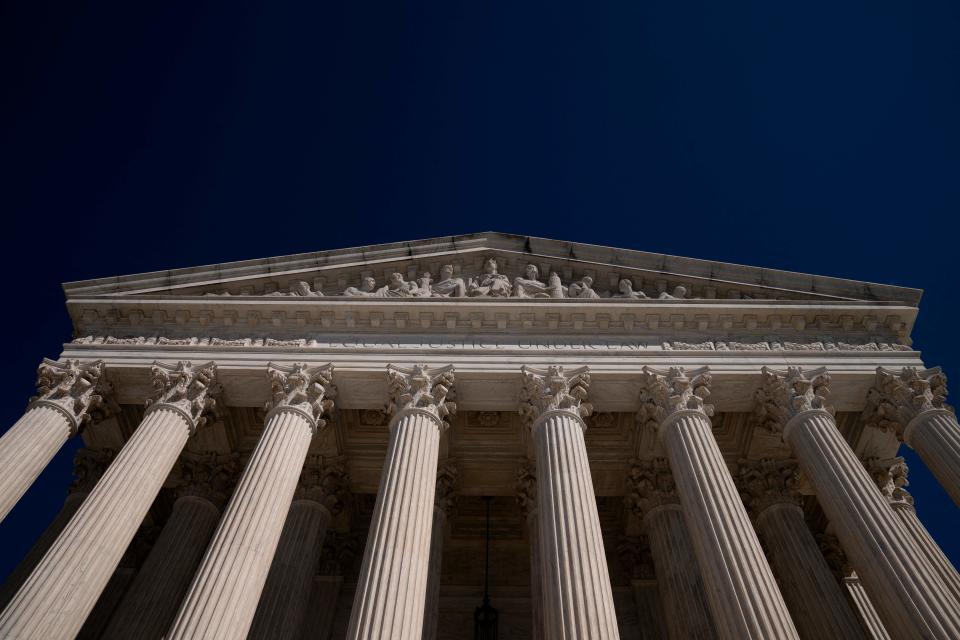A new appeals court decision weakens the Voting Rights Act. It is likely bound for the Supreme Court
- Oops!Something went wrong.Please try again later.
WASHINGTON – A federal appeals court has issued a ruling that limits who can sue under the Voting Rights Act, a decision that if allowed to stand would severely undermine enforcement of the landmark 1965 law.
A 2-1 ruling Monday from the U.S. Court of Appeals for the 8th Circuit found that only the U.S. Attorney General is authorized to sue under a key section of the law, meaning voters and groups like the NAACP would be barred from doing so.
The decision, which probably will be appealed to the Supreme Court, applies to seven states: Arkansas, Iowa, Minnesota, Missouri, Nebraska, North Dakota and South Dakota.
Two public advocacy groups, the Arkansas NAACP and the Arkansas Public Policy Panel, sued over Arkansas’ state legislative maps.
All three judges, including Chief Judge Lavenski Smith, who dissented, were appointed by Republican presidents.
Section 2 of the Voting Rights Act bars voting practices or procedures that discriminate on the basis of race, color or other characteristics. Less than six months ago, the Supreme Court decided a major Section 2 case from Alabama in favor of private groups who sued.

In that 5-4 decision by Chief Justice John Roberts, the court knocked down Alabama's argument that race shouldn't be a factor at all in the way the state drew its congressional maps. The state’s maps included 1 district out of 7 with a majority of Black voters. African Americans account for more than a quarter of the state's overall population.
Though that decision was a win for voting rights groups, it followed a series of other decisions that have undermined the Voting Right Act.
In 2021, the Supreme Court upheld an Arizona law barring unions and advocacy organizations from collecting voters' mail-in ballots, a practice critics call "ballot harvesting." The court signaled that challenges to voting rules brought under the Voting Rights Act's prohibition on discrimination – though still possible – may become far harder to win. That opinion came eight years after the court gutted another provision of the Voting Rights Act that permitted the Justice Department to review election laws in states with a history of racial discrimination.
This article originally appeared on USA TODAY: Appeals court decision weakens Voting Rights Act enforcement

